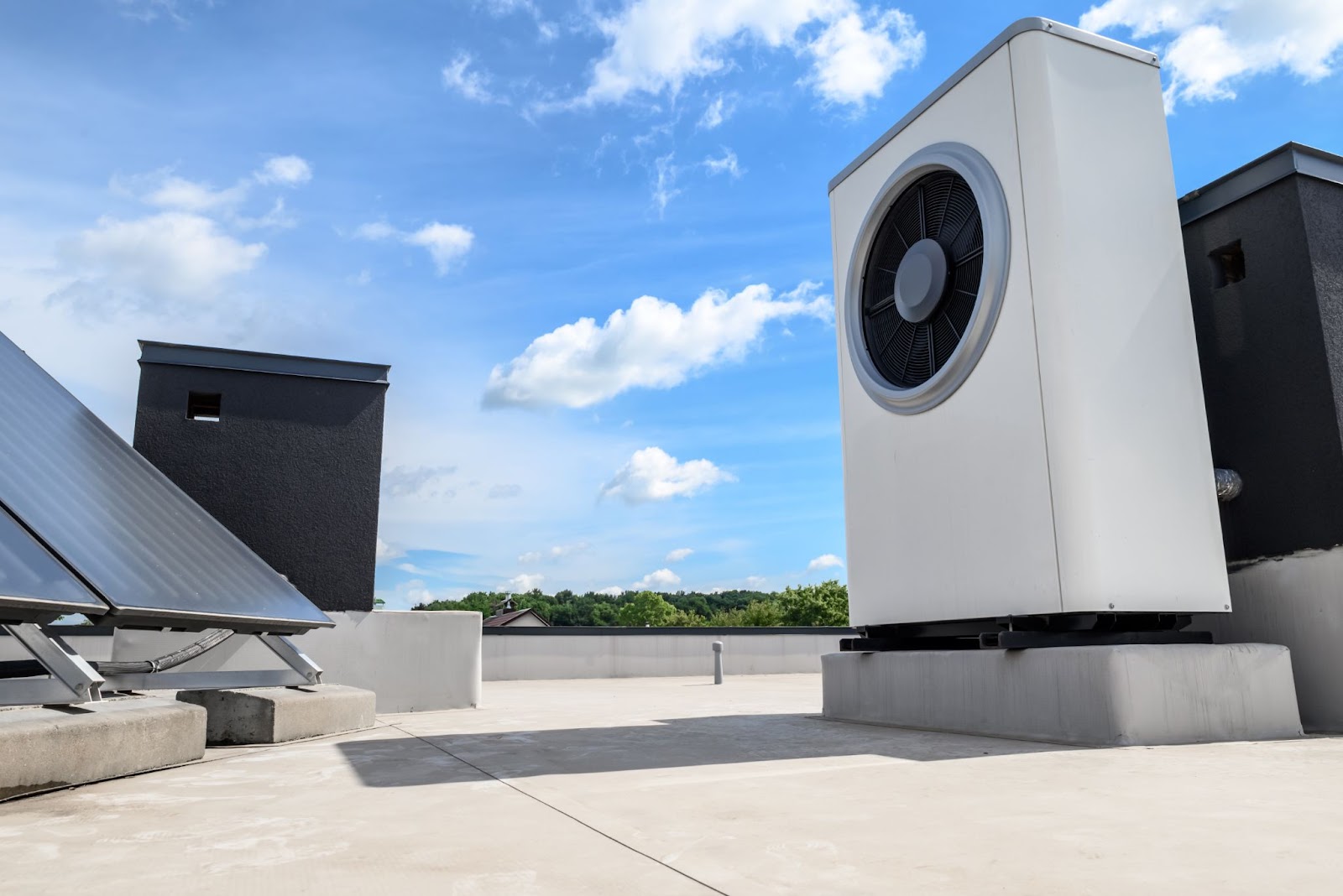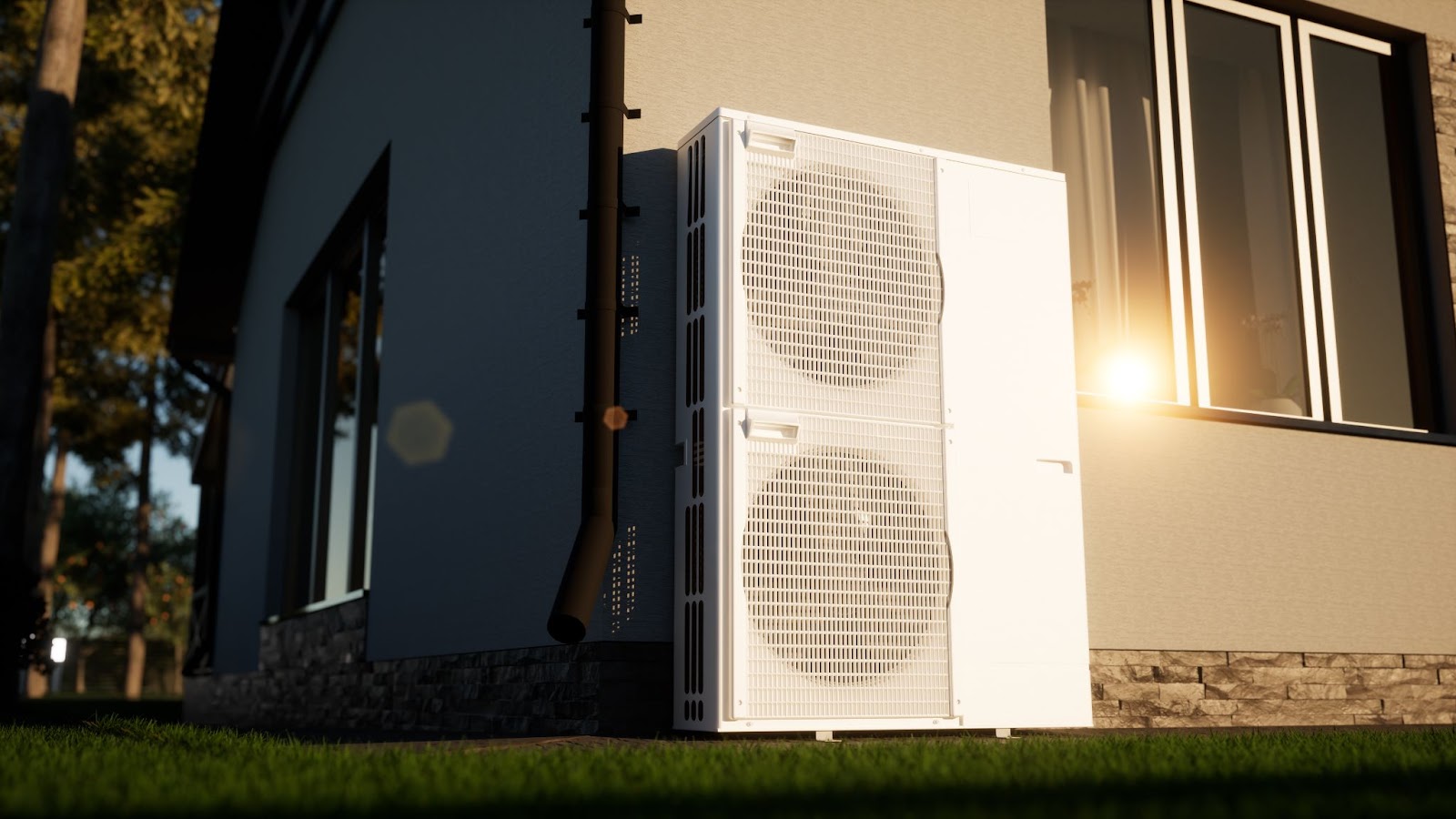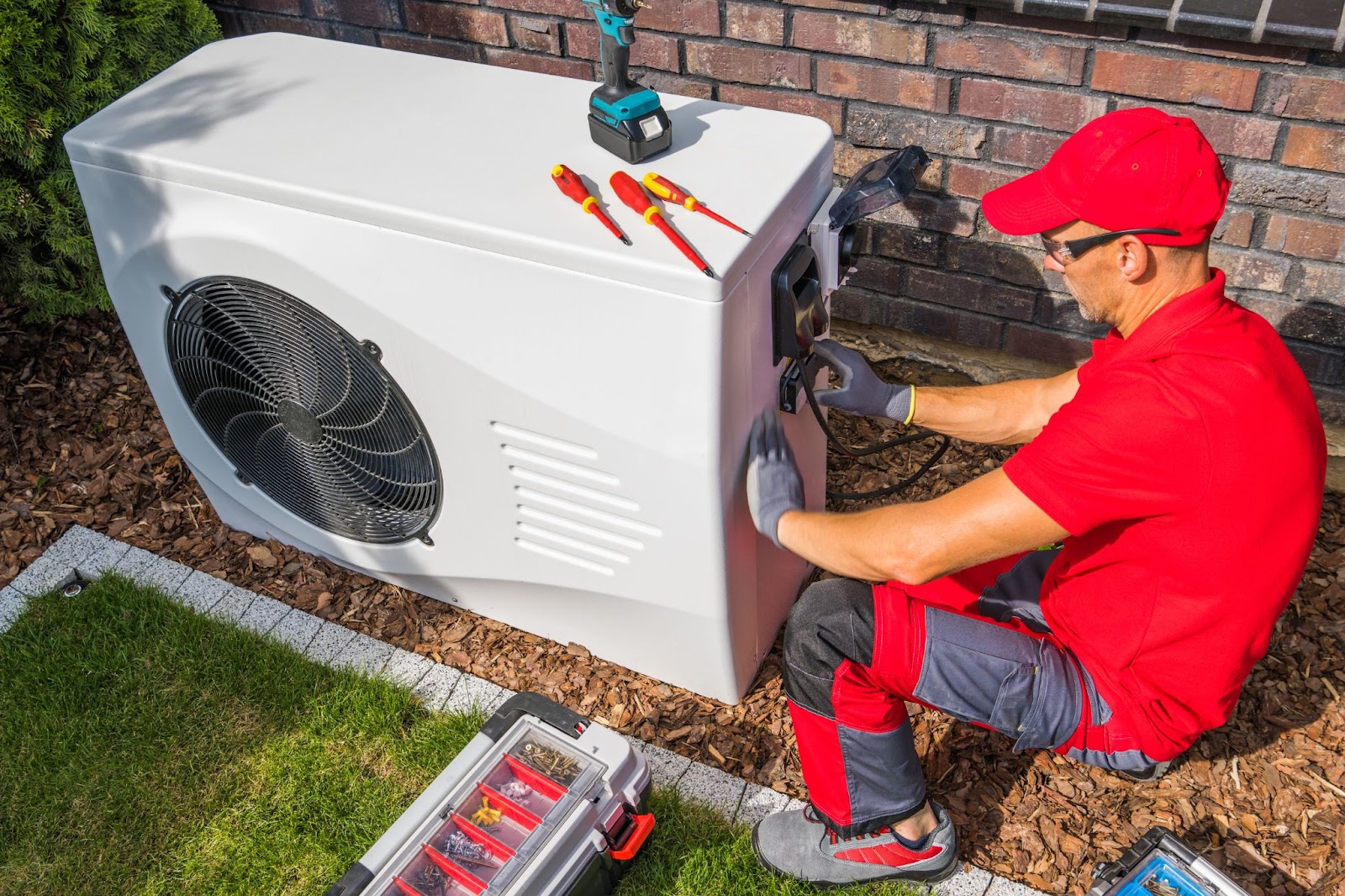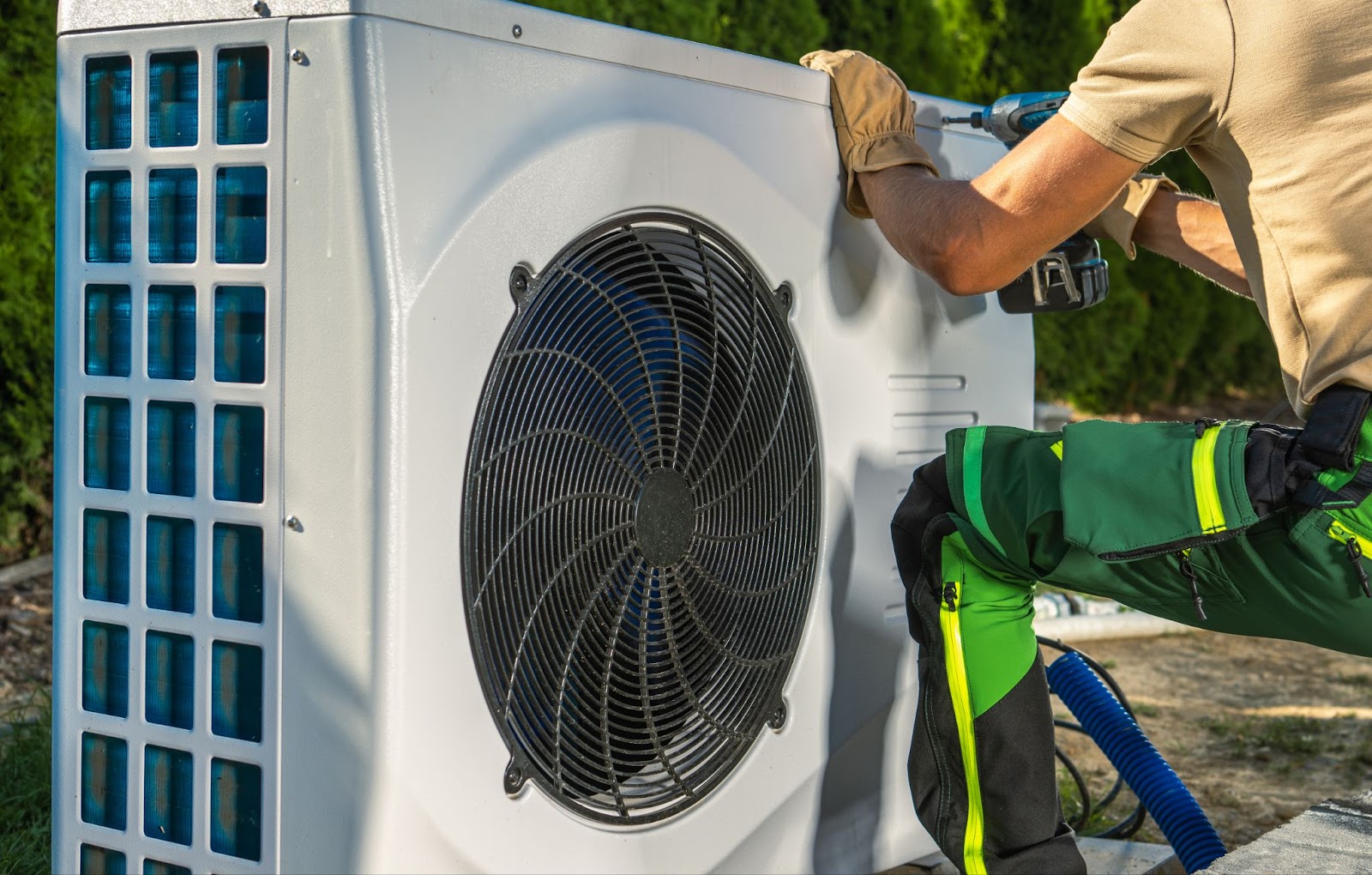
What Is a Heat Pump?
What exactly is a heat pump, you ask? Well, it’s not just your average HVAC system. A heat pump is a versatile and energy-efficient technology that can both heat and cool your home, offering year-round comfort in a single unit. But how does it work, and what are the benefits? Join us as we unravel the mysteries of heat pumps and discover why they’re becoming a popular choice for homeowners everywhere.
Understanding Heat Pumps
At its core, a heat pump is a device that transfers heat from one location to another, using a refrigerant cycle to provide both heating and cooling capabilities. Unlike traditional heating systems that generate heat by burning fuel, such as gas or oil furnaces, heat pumps extract heat from the air, ground, or water sources, depending on the type of system. This extracted heat is transferred indoors during colder months to warm the home and expelled outdoors during warmer months to cool the house, providing year-round comfort with a single system.
Types of Heat Pumps
Several types of heat pumps are available, each suited for different applications and environmental conditions.
1. Air-Source Heat Pumps
The most common type of heat pump is air-source heat pumps, which extract heat from the outdoor air and transfer it indoors during the heating season. By leveraging the ambient heat from the outdoor air, these heat pumps can effectively warm indoor spaces during colder months while providing refreshing cooling during the summer. Their versatility and cost-effectiveness make them popular for residential heating and cooling needs in moderate climates.
2. Ground-Source Heat Pumps (Geothermal)
Ground-source heat Pumps, or geothermal heat pumps, are an excellent choice for homeowners in Needham Heights, MA, looking to maximize energy efficiency and minimize utility costs. While they require a higher initial investment, their ability to harness the stable temperatures of the earth’s surface for heating and cooling offers unparalleled efficiency and long-term savings. With proper installation and maintenance, geothermal heat pumps can provide reliable and sustainable comfort for years, making them a wise investment for environmentally conscious homeowners.
3. Water-Source Heat Pumps
Water-source heat pumps provide an innovative solution for homeowners in Needham Heights, MA, with access to nearby bodies of water. By utilizing lakes, rivers, or ponds as heat sources or heat sinks, these heat pumps offer efficient heating and cooling with minimal environmental impact. While they share similarities with ground-source heat pumps, water-source heat pumps are particularly well-suited for properties near water bodies, providing an alternative to traditional heating and cooling systems.

How Heat Pumps Work
The operation of a heat pump is based on the principles of thermodynamics, specifically the refrigeration cycle. Here’s a simplified overview of how a heat pump works:
Heat Absorption
In heating mode, the refrigerant within the outdoor coil of the heat pump acts as the medium for absorbing heat from the surrounding environment. For air-source heat pumps, this involves extracting heat from the outdoor air. Ground-source (geothermal) heat pumps utilize the relatively stable temperatures of the ground or groundwater as their heat source. Water-source heat pumps draw heat from bodies of water such as lakes or rivers. Regardless of the heat source, the absorbed heat causes the refrigerant to undergo a phase change, transitioning from a liquid to a low-pressure gas state.
Compression
Following heat absorption, the low-pressure gaseous refrigerant is then directed to the compressor, a vital component of the heat pump system. The compressor’s primary function is to increase the pressure of the refrigerant gas, raising its temperature significantly. Through compression, the refrigerant’s energy becomes concentrated, allowing it to effectively transfer heat to the indoor space during the next stage of the cycle.
Heat Release
Once the refrigerant has been compressed and its temperature elevated, it is transported to the heat pump’s indoor coil. Here, the hot, high-pressure gas releases its thermal power into the indoor air through a process known as condensation. As the refrigerant undergoes condensation, it changes back into a liquid state, releasing the stored heat energy into the surrounding air. This warmed air is distributed throughout the indoor space via the home’s ductwork or air handling system, ensuring comfortable temperatures during the heating season.
Reversal for Cooling
During the warmer months, when cooling is required, the refrigerant cycle within the heat pump is reversed to provide air conditioning. In this mode, the indoor coil is the evaporator, absorbing heat from the indoor air. The heat absorbed by the refrigerant is then expelled outdoors as it passes through the outdoor coil, where it undergoes compression and heat release. As a result, the cooled air is circulated back indoors, effectively lowering the indoor temperature and maintaining comfort during the cooling season. This reversal of the refrigerant cycle demonstrates heat pumps’ versatility in providing heating and cooling solutions throughout the year.
Benefits of Heat Pumps
Heat pumps offer several advantages over traditional heating and cooling systems:
Energy Efficiency
Heat pumps excel in energy efficiency due to their ability to transfer heat from one location to another rather than relying on fuel combustion to generate heat. By leveraging existing heat sources, such as outdoor air, ground, or water, heat pumps can achieve impressive coefficients of performance (COP), meaning they produce more heating or cooling energy output for each unit of electrical energy input. This high level of efficiency translates to lower energy consumption and reduced utility bills for homeowners, making heat pumps a cost-effective and environmentally sustainable heating and cooling solution.
Versatility
One of the key advantages of heat pumps is their versatility in providing heating and cooling functions from a single system. Unlike traditional HVAC setups that require separate furnaces for heating and air conditioners for cooling, heat pumps offer a comprehensive solution for year-round comfort. Heat pumps can seamlessly transition between heating and cooling modes by reversing the refrigerant cycle, adapting to changing temperature demands, and ensuring consistent comfort throughout the seasons.
Environmental Friendliness
Heat pumps are recognized for their environmental friendliness compared to fossil fuel-based heating systems such as gas or oil furnaces. By utilizing renewable heat sources and employing energy-efficient technology, heat pumps produce fewer greenhouse gas emissions during operation, helping to mitigate climate change and reduce the carbon footprint of residential heating and cooling. For environmentally conscious homeowners seeking greener alternatives, heat pumps offer a sustainable solution that aligns with their environmental values.
Quiet Operation
Compared to traditional HVAC systems, which often rely on noisy fans and compressors, heat pumps operate quietly, providing a more peaceful indoor environment. The advanced technology and design features of modern heat pumps result in reduced noise levels during operation, allowing homeowners to enjoy uninterrupted comfort without disruptive sound disturbances. Whether heating or cooling, heat pumps deliver quiet performance, enhancing the overall quality of life in the home.
Consistent Comfort
With precise temperature control and even distribution of heating and cooling throughout the home, heat pumps offer consistent comfort in every room. Unlike conventional heating systems that may produce uneven temperatures or hot/cold spots, heat pumps maintain a steady and comfortable indoor climate, ensuring optimal comfort for occupants year-round. Whether a scorching summer day or a chilly winter night, homeowners can rely on their heat pump to deliver reliable and consistent comfort, enhancing their overall living experience.

Seamless Installation and Comprehensive Support
Introducing the installation process, Kerivan-Lane ensures meticulous attention to detail from start to finish, with expert technicians handling every aspect to guarantee seamless integration. Transitioning to post-installation support, our commitment to customer satisfaction shines through with comprehensive maintenance plans and prompt repair services.
Installation Process
Installing a heat pump involves several critical steps to ensure optimal performance and longevity. From selecting the right system for your home’s needs to expert installation by qualified technicians, every aspect of the process requires careful attention to detail. At Kerivan-Lane, Inc., we prioritize precision and quality in every installation, ensuring that your heat pump is seamlessly integrated into your home’s HVAC system. Our experienced technicians handle all aspects of the installation process, from site assessment and equipment selection to ductwork modification and system commissioning. With Kerivan-Lane, Inc., you can trust that your heat pump installation will be completed efficiently and effectively, delivering reliable comfort for years.
Post-Installation Support
Our commitment to customer satisfaction extends beyond the installation process. At Kerivan-Lane, Inc., we offer comprehensive post-installation support to ensure that your heat pump continues to perform optimally long after installation. Our maintenance plans include regular inspections, tune-ups, and cleaning to keep your system running smoothly and efficiently. In the event of any issues or concerns, our dedicated team of service technicians is available to provide prompt and reliable repairs, minimizing downtime and disruptions to your comfort. With Kerivan-Lane, Inc. by your side, you can enjoy peace of mind knowing that your heat pump investment is protected and supported by industry-leading expertise and service.

Choosing the Right Heat Pump
Selecting the right heat pump for your home depends on climate, property size, budget, and energy efficiency goals. Kerivan-Lane, Inc.’s team of experts can help you assess your needs and recommend the ideal heat pump solution tailored to your requirements. Whether you’re considering an air-source, ground-source, or water-source heat pump, we have the knowledge and expertise to guide you through the selection process and ensure a seamless installation.
Trust Kerivan-Lane, Inc. for Your Heat Pump Needs
When it comes to heat pumps in Needham Heights, MA, Kerivan-Lane, Inc. is your trusted partner for expert advice, installation, and service. With decades of experience in the HVAC industry and a commitment to excellence, we have the knowledge and resources to help you achieve optimal comfort and energy efficiency in your home. Contact us today to learn more about our heat pump solutions and how we can enhance indoor comfort year-round.
Visit our Kerivan-Lane blog to learn more about heating services from our team in Needham Heights, MA.